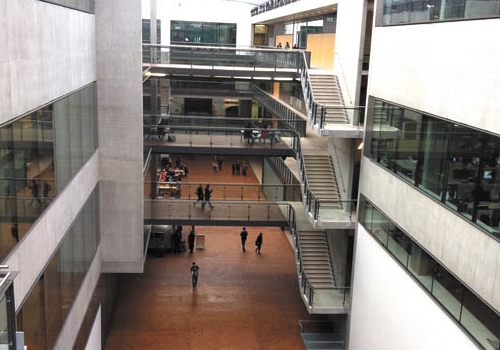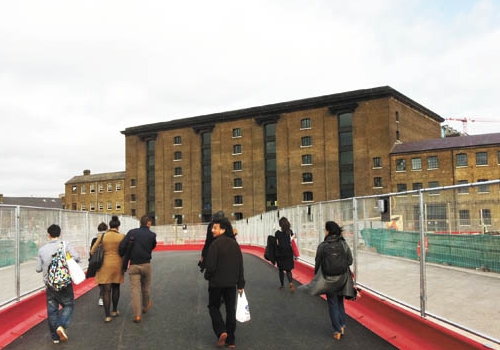New £200m campus at University of Arts set to become London's ‘cultural capital’



Published: 13 October 2011
by DAN CARRIER
Sir John Tusa said there would be a shift which would make the area the capital’s cultural centre.
He was speaking to the New Journal as the university threw open the doors to its £200million new campus.
Students poured into the university, based in the old Granary Building, on Monday.
Sir John, who lives in Hampstead and was the managing director of the BBC World Service, said: “This represents a genuine cultural shift in London to King’s Cross.
“This building is all about creativity. This is a landmark for the university, and therefore for British creativity.”
He said the university, which is partly housed in a Victorian warehouse next to the Regent’s Canal and partly a new-build designed by Islington-based architects Stanton Williams, would give King’s Cross a new reputation in years to come.
The building includes pedestrian walk-throughs for the public. They lead from York Way into the Coal Drop arches, which were once used to take coal from trains coming into London.
Sir John said the effect of having 5,000-plus students working and living in the area would fundamentally change King’s Cross.
He added: “It is not just the size of the place – it is big – but it is the fact it is open to the public.
“There are so many ways you can come in to the site and walk right through it.
“The site is open and will be the first thing people see when they step off the Eurostar. It is the key building in a key site.”
Developer Argent’s chief executive David Partridge told the New Journal that criticisms of too many offices and not enough housing, which have been frequently levelled at the developers, were unfounded.
He also said despite the economic downturn – which has meant companies like Sainsbury’s who were due to take up space have stalled on signing deals – was not an issue.
Mr Partridge would not be drawn on any new potential tenants but said he had been discussing office space with various companies.
The developer also revealed that before the university came forward to take on the site, it was being eyed up by entertainment promoters.
The university, which was wholly funded by the sale of the institute’s campuses in Charing Cross road and Holborn and a loan of £100m, could have become a “Hollywood Bowl”-style cinema.



